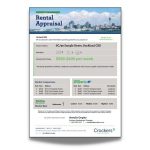Are you a property owner in New Zealand and looking for the right property manager to handle your investments? Choosing the right property manager is crucial in ensuring the successful management of your properties. In this article, we will provide you with valuable tips and guidance on how to choose the right property manager in New Zealand. Whether you have a single rental property or a portfolio of properties, our insights will help you make an informed decision and find a property manager who will effectively handle your investments with professionalism and expertise.
Understanding the role of a property manager
A property manager plays a crucial role in managing and maintaining rental properties on behalf of landlords. They act as the intermediary between landlords and tenants, ensuring that the property is well-maintained, rent is collected, and tenants are satisfied. Understanding the responsibilities of a property manager is vital in choosing the right one for your rental property.
Primary responsibilities of a property manager
The primary responsibilities of a property manager include finding and screening tenants, collecting rent, handling maintenance and repairs, and resolving tenant concerns. They are also responsible for marketing the property, ensuring compliance with local laws and regulations, and representing the landlord in legal matters.
Importance of hiring a property manager
Hiring a property manager can save you time and stress by taking care of the day-to-day management tasks. They have the experience and expertise to handle tenant-related issues effectively, and their knowledge of local market conditions can help optimize rental income. Additionally, property managers can provide legal support and handle evictions if necessary, ensuring that your investment is protected.
Factors to consider when choosing a property manager
When selecting a property manager, it is essential to consider various factors to ensure that they are well-equipped to handle the responsibilities effectively.
Experience and expertise
One of the primary factors to consider is the property manager’s experience and expertise in managing rental properties. A seasoned property manager will have a deep understanding of the intricacies of property management and will be better equipped to handle any challenges that may arise.
Familiarity with the local market
The property manager’s familiarity with the local market is crucial for optimizing rental income. They should have a solid knowledge of rental rates, vacancy rates, and market trends in the specific area where your property is located. This knowledge will enable them to set competitive rental prices and attract quality tenants.
Management fees
Another factor to consider is the management fees charged by the property manager. While it is not advisable to choose a property manager solely based on their fees, it is essential to ensure that their charges are reasonable and within market norms. It is also recommended to inquire about any additional fees or hidden costs that may be associated with their services.

Analyzing the services offered by property manager
Before finalizing a property manager, it is crucial to analyze the services they offer to ensure that they align with your expectations and requirements.
Tenant screening and selection
Tenant screening and selection is a critical task that a property manager should excel at. They should have a comprehensive screening process in place to select reliable tenants who are likely to pay rent on time and take care of the property. This process may include background checks, credit checks, employment verification, and reference checks.
Rent collection and financial management
Property managers should be proficient in collecting rent from tenants and ensuring timely payment. They should have a reliable system in place for rent collection and keep accurate financial records. Additionally, they should provide regular financial reports to landlords, detailing income and expenses associated with the rental property.
Property maintenance and inspection
Maintaining the property in good condition is essential to attracting and retaining quality tenants. Property managers should have a proactive approach to property maintenance, responding promptly to maintenance requests and conducting regular inspections to identify any issues that need attention. They should also have a network of reliable contractors and service providers to facilitate repairs and maintenance.
Legal support
Navigating the legal aspects of rental property management can be complex. A competent property manager should have a good understanding of local laws and regulations pertaining to rental properties. They should be able to provide legal support and advice to landlords, ensuring compliance and handling any legal issues that may arise, such as evictions or tenant disputes.
Evaluating the property manager’s reputation
A property manager’s reputation is indicative of their past performance and the level of satisfaction experienced by their clients. Evaluating their reputation can give you valuable insights into their professionalism and reliability.
Online reviews and rating
Checking online reviews and ratings of a property manager can provide an objective perspective on their services. Websites such as Google, Yelp, and property management review sites can offer valuable feedback from both landlords and tenants. Look for property managers with consistently positive reviews and high ratings.
Recommendations and references
Seeking recommendations and references from other landlords or property owners can be highly beneficial in evaluating a property manager’s reputation. Word-of-mouth recommendations are often reliable and can give you an idea of the property manager’s strengths and weaknesses.
Achievements and awards
Consider any achievements or awards that the property manager has received. These accolades are an indication of their dedication to excellence and commitment to providing superior property management services.

Meeting potential property managers
Once you have shortlisted a few potential property managers, it is essential to conduct face-to-face meetings to gauge their suitability for your rental property.
Importance of conducting face-to-face meetings
Meeting property managers in person allows you to assess their professionalism, communication skills, and overall demeanor. It gives you an opportunity to ask questions and get a sense of how they would handle various situations related to your rental property.
Questions to ask during the meeting
Prepare a list of questions to ask potential property managers during the meeting. Include questions about their experience, their approach to tenant screening, how they handle maintenance and repairs, their fee structure, and any additional services they offer. This will help you gather all the necessary information to make an informed decision.
Evaluating the manager’s communication skills
Effective communication is essential in property management. During the meeting, pay attention to the property manager’s communication skills, responsiveness, and ability to articulate their thoughts clearly. A property manager who communicates well will foster better relationships with tenants and ensure effective communication with landlords.
Checking the property manager’s accreditation
Accreditation and professional qualifications can speak volumes about a property manager’s commitment to ongoing professional development and industry standards.
Professional qualification and certifications
Inquire about the property manager’s professional qualifications and certifications. Look for certifications such as Certified Property Manager (CPM) or Real Property Administrator (RPA), which demonstrate their expertise and dedication to their profession.
Membership in professional organizations
Property managers who are members of professional organizations, such as the Real Estate Institute of New Zealand (REINZ), are likely to adhere to industry standards and best practices. Membership in these organizations is an indication of their commitment to ongoing learning and professional development.
Continuous professional development
Ask potential property managers about their commitment to continuous professional development. Property management is an ever-evolving field, and property managers should stay updated with industry trends, changes in legislation, and best practices. A property manager who invests in their professional development is more likely to provide quality and up-to-date services.

Understanding the property manager’s contract
Before finalizing the agreement with a property manager, it is crucial to thoroughly review and understand the terms and conditions of their contract.
Reading the fine print
Take the time to read the contract carefully and understand all the terms and conditions. Pay attention to clauses regarding fees, responsibilities, termination, and any additional services. If there is anything that is unclear or ambiguous, seek clarification before signing the contract.
Making sure the services are well-defined
Ensure that the services provided by the property manager are clearly defined in the contract. This may include tasks such as tenant screening, rent collection, property maintenance, and legal support. Having well-defined services will help avoid any misunderstandings or disputes in the future.
Understanding termination clauses
It is crucial to understand the termination clauses in the contract. Familiarize yourself with the notice period required to terminate the agreement and any associated penalties or fees. Understanding these clauses will give you peace of mind and flexibility in case you decide to switch property managers in the future.
When to consider switching your property manager
While finding the right property manager is crucial, it is also important to recognize when it may be time to consider switching to a new one.
Persistent vacancies
If your property is consistently experiencing high vacancy rates, it may be an indication that your current property manager is not effectively marketing the property or screening tenants adequately. Persistent vacancies can result in lost rental income and may require a change in management to better attract and retain tenants.
Failure to communicate
Effective communication is key in property management. If your property manager consistently fails to respond promptly to your inquiries or provide regular updates on property-related matters, it may be a sign that they are not adequately fulfilling their responsibilities. Good communication is vital for trust and transparency between landlords and property managers.
Financial discrepancies
If you notice financial discrepancies in the rent collected or inconsistencies in the financial reports provided by your property manager, it could be a cause for concern. Property managers should handle finances diligently, and any discrepancies may be a red flag that warrants a change in management.

The benefits of hiring the right property manager
Hiring the right property manager can bring numerous benefits to landlords and property owners.
Peace of mind
Knowing that your rental property is in the hands of a competent and trustworthy property manager brings peace of mind. You can rest easy knowing that your property is being well-managed, tenants are taken care of, and any issues that arise will be handled promptly and professionally.
Greater return on investment
A skilled property manager can help maximize your return on investment by optimizing rental income and minimizing vacancies. Their knowledge of the local market and rental trends allows them to set competitive rental rates, attracting quality tenants and ensuring consistent rental income.
Reduced legal worries
Property management involves navigating various legal aspects, including tenant-landlord relationships, lease agreements, and compliance with local laws and regulations. A knowledgeable property manager can handle these legal matters, ensuring that you remain in adherence to the law and minimizing any legal risks or disputes.
Conclusion: The importance of careful selection
In conclusion, choosing the right property manager is crucial for the successful management of your rental property. By evaluating their experience, services, reputation, and qualifications, you can make an informed decision that aligns with your needs and expectations.
Retrospection on the points discussed
Throughout this article, we have explored the various factors to consider when choosing a property manager. From understanding their role and responsibilities to evaluating their reputation and services, thorough research and careful consideration can lead to the selection of a property manager who meets your specific requirements.
Emphasize on benefits of hiring the right property manager
The benefits of hiring the right property manager cannot be overstated. With their expertise, you can enjoy the peace of mind that comes with knowing your investment property is in capable hands. They can optimize rental income, handle maintenance and repairs, and ensure compliance with local laws, all while reducing your workload and stress.
Call to action for readers
If you are a landlord or property owner in New Zealand, take the time to carefully consider the factors outlined in this article when choosing a property manager. Conduct thorough research, ask the right questions, and prioritize qualifications and experience. By doing so, you can find a property manager who will efficiently and effectively manage your rental property, allowing you to reap the rewards of property ownership without the hassle.







